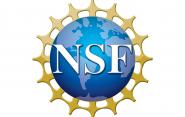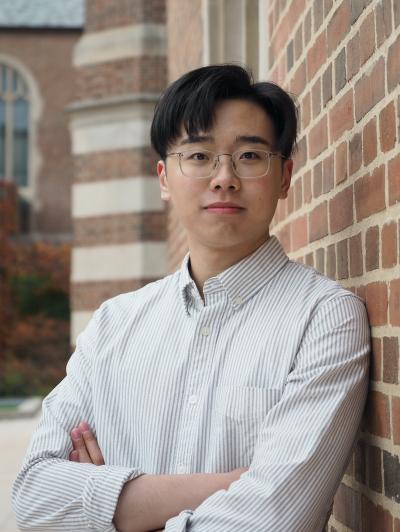Yongshan Ding Wins NSF Career Award

For his work on developing error-correcting quantum computing systems, Prof. Yongshan Ding has won a 2024 Faculty Early Career Development (CAREER) Award from the National Science Foundation (NSF).
 Ding, assistant professor of computer science, will use the $800,000, five-year grant to design a novel architecture of error-corrected quantum computer. The NSF CAREER award is a prestigious honor for young faculty members and supports the early career activities of teachers and scholars who are most likely to become the academic leaders of the future.
Ding, assistant professor of computer science, will use the $800,000, five-year grant to design a novel architecture of error-corrected quantum computer. The NSF CAREER award is a prestigious honor for young faculty members and supports the early career activities of teachers and scholars who are most likely to become the academic leaders of the future.
Quantum computers have the potential to solve some of the most complex problems in physics, chemistry, material design, optimization, and machine learning. But among other challenges, researchers need to build quantum computers that operate reliably in the presence of “quantum noise” - the error-causing phenomenon that can happen when a quantum system interacts with its environment.
“It's very hard to use quantum computers these days because there is a lot of noise going on,” Ding said. “My job is to simplify it by automating error correction so the user doesn't have to worry about it, and thus making it easier to program.”
A great deal of progress has been made toward creating fault-tolerant quantum computation, but new methods are needed to scale these quantum systems in a way that allows for the quantity and quality of logical qubits required to make these computers practical.
Today, Ding notes, classical computer’s failure rate due to environmental noise is measured in units of one error in about a million compute hours. As comparison, in quantum computers, one out of 1,000 to 10,000 operations can go wrong (or about one error per millisecond).
Ding’s novel approach focuses on allowing multiple types of superconducting qubits to work together in a single system. In quantum computing, information is stored in special devices with quantum properties that are known as quantum bits, or “qubits.” Supercomputing qubits, which are chilled to temperatures close to absolute zero, have much faster operation times. In Ding’s computing system, “cheap” and “expensive” supercomputing qubits work together. Expensive qubits are less prone to errors, but are larger and take up a greater amount of space in the computer’s hardware.
“So we can't make too many of those big ones, but we can make many small ones that work with the big error-corrected ones,” said Ding, who is working on the project with applied physics professors Robert Schoelkopf, Steven Girvin, and Shruti Puri.
Part of the system involves the use of compiler software that makes intelligent decisions about where to run the instructions that users program into the computer. That is, it will direct important operations to the error-corrected qubits, and other operations that can tolerate errors to the noisy qubits.
Ding said he’s excited about this project, and in general about the future of quantum computing.
“I really think that we're beginning a new era in quantum computing where we think about quantum computer architecture, and different hardware organizations of qubits to facilitate new applications in quantum computing,” he said. “I think it's a pretty exciting time to be doing this.”

